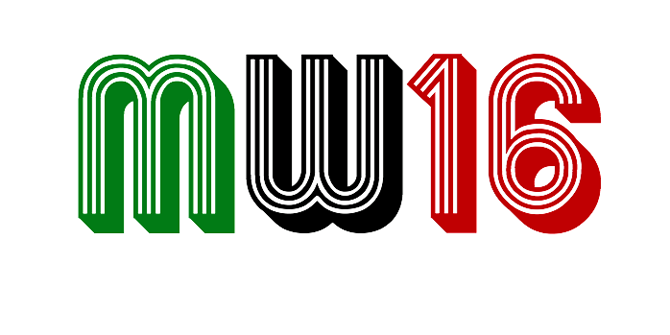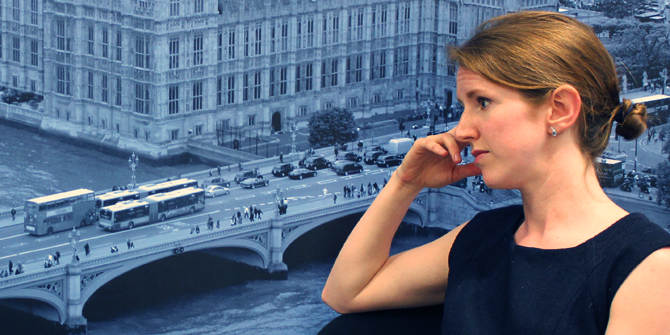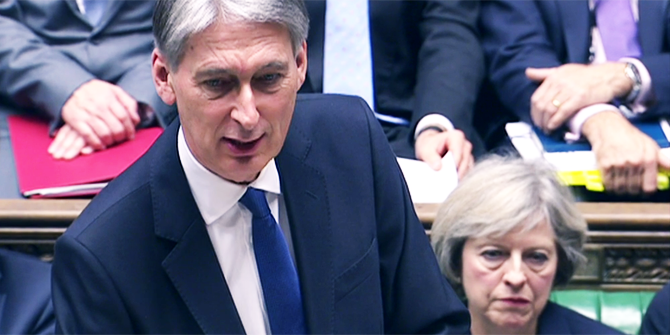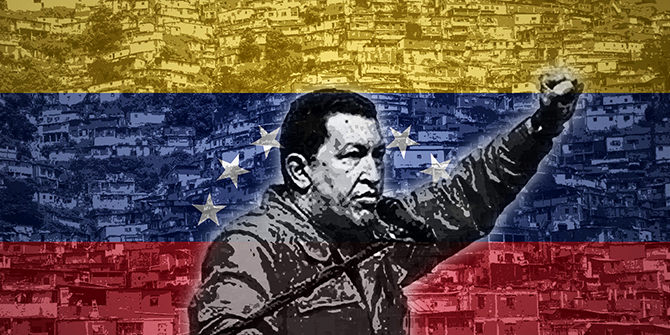
Paola Romero reflects on Michele Calabresi’s documentary ‘The Twilight of Magical Socialism. The Venezuelan Experience’ following a recent screening and debate hosted by the LSE SU Latin American Society.
As a Venezuelan, I was always told that we were a rich country, but one where politicians looted the natural resources which rightfully belong to the people. Personally, I have grown to learn that there is no such thing as a free lunch, and that corruption is a universal disease.
Hugo Chavez came into power as President of Venezuela in 1999 to actualize this founding myth through what he called a “Bolivarian Revolution.” Indeed, Venezuela was already perceived as a rich country due to oil revenues before Chavez came into the political arena, but what was needed, so the story goes, was a charismatic leader capable of re-distributing to the people what they deserved by right. Under Chavez the founding myth of re-distribution based on national wealth, and the ideological backup propelling it, took on a regional and global dimension. Now not only were Venezuelan’s under its spell, but also the International Left.
Michele Calabresi’s documentary ‘The Twilight of Magical Socialism’ (2017) is an attempt to critically contest the myth surrounding Chavez and the legacy of his “Socialism of the 21st century”. This carefully crafted documentary offers an immanent critique of the 14 years of Chavismo in Venezuela, from the perspective of both its defenders and its detractors. Thanks to the organization of the LSE Latin American Society, the film was screened followed by an intense debate. With the participation of the director, Michele Calabresi, and political analyst and LSE Alumni Diego Moya-Ocampos, we engaged in an interesting and fruitful discussion.
Three issues caught my attention in this documentary: first, the challenges that Chavez’s self-characterization as the leader of a ‘socialist’ revolution posed to the socialist parties already at play in the political arena in 1999 and onwards. Second, the progressive radicalization of Chavismo towards authoritarian nationalism, seated in a model of political clientelism. And finally, Chavez’s resoluteness to crush all social forces – mainly represented by the Workers Union and gremial groups – that posed alternative forms of contestation to the hegemony of his political project.
The Two Lefts
Venezuela already had a strong socialist tradition before Chavez. Calabresi starts his critique by engaging with the dissident voices of this “traditional left”, thus posing the problem of, what he calls “The Two Lefts” in Venezuela’s politics: one, represented by the social-democratic parties (El MAS, Partido Comunista) whose origins go back to the armed conflict of the guerrilla in the 60’s, and their gradual alignment into a party-based electoral democracy. The other, represented by Chavez and his party PSUV, self-defined as Marxist-Leninist, openly associated with Fidel Castro, with deep militaristic leanings. For this “Bolivarian Left” the electoral route was seen as a means to a further end: the expropriation and consequent nationalization of the means of production to ‘give people back their due.’
The difference between these “Two Lefts” is not only theoretical. As the documentary progresses, we see how Chavismo gradually neutralized all alternative forms of contestation against it, by subsuming them into a single nationalist narrative. The struggle of the dissident voices within the left became one of keeping a space of autonomy independent of the state’s ruling party. A case in view was Chavez’s battle against the Workers Union’s (Confederacion de Trabajadores de Venezuela) voiced by one of the Union leaders; we are witness to the abuses committed against their pension schemes, work guarantees, and any form of collective bargaining, until their total obliteration.
The national oil-strike of 2002, and the continuous hunger strikes of medicos, nurses, and member of civil society, made evident that the benefits of this Socialist Revolution were limited only to a selected few. It is thus one of the virtues of Calabresi’s documentary that these crucial aspects, so often forgotten by the more pressing political and economic crisis of the present, are addressed and scrutinized free of ideological constraints. We learn that part of the legacy of Chavismo was thus to crush the social forces that, paradoxically, were historically aligned with the Left’s concern for justice, dignity, and work security.
The Myth vs the Legacy
The “Two Lefts” in Venezuela were also at an ideological crossroad. The battle between democracy and socialism, between pluralism and authoritarianism, was really a battle between different political models altogether. It was Chavez’s political triumph to impose, against the majority’s vote in a Referendum in 2007, an interpretation of direct-democracy based on the so-called “decentralization of power.” This decentralization was supposed to translate into autonomous models of self-government in each community. However, in reality self-rule in this case meant more power to the local mafias (called “collectivos”) armed and financed directly by the central state.
This form of democratic “empowerment” of the poorest population quickly transformed into the institution of political clientelism. As the documentary illustrates, being “chavista” gave you access to Cuban doctors working on preventive medicine, as well as to cheap home appliances, such as washing machines and fridges distributed by Chavez himself over nationally broadcasted T.V. Citizenship became a form of clientelism, leading to the inevitable, but politically desirable end, of making the low and middle class more and more dependent on the state. Direct democracy meant direct control.
As I mentioned at the start, Chavez was perceived by Latin Americans’ and Europeans’ alike, as the redeemer of social justice. He actualized this myth by dismantling the traditional political party system, eroding public trust in institutions with a pernicious anti-politics discourse. By speaking in the name of “all”, Chavismo was progressively silencing – with soft-power, prison, or death – all dissident voices.
What is the legacy, then, of this Socialist, Bolivarian, Revolution? This is the question with which Calabresi’s final and dramatic footage ends: a family of three looking inside a rubbish bin for food. It is for us, as students of politics, to understand how this humanitarian crisis came about. This documentary helps to put together the pieces of an answer by starting to debunk the myth behind the Revolution.
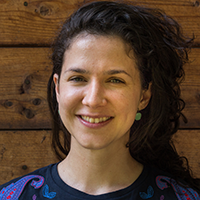 Paola Romero is a PhD Candidate in the LSE Department of Government.
Paola Romero is a PhD Candidate in the LSE Department of Government.
Note: this article gives the views of the author, and not the position of the LSE Department of Government, nor of the London School of Economics.


